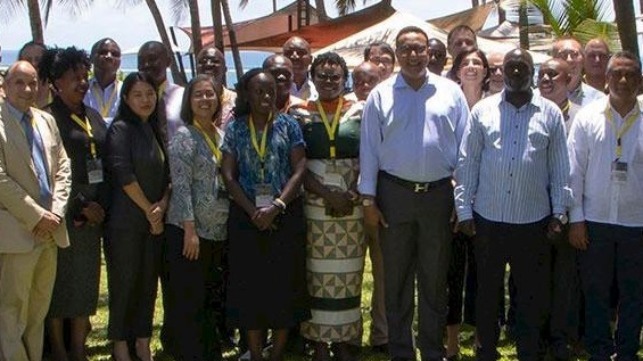 Credit: TRAFFIC
Credit: TRAFFIC
By The Maritime Executive 2019-11-02 21:43:44
76 port and maritime supply chain representatives from 12 countries convened last month to agree measures to address wildlife trafficking through Mombasa seaport in Kenya.
The port of Mombasa is the largest seaport in Africa and is a key exit point for trafficking of African wildlife. One of the most publicized seizures at Mombasa port involved two containers declared as tea leaves that were intercepted with more than three tonnes of ivory, four rhino horns and teeth from leopards and cheetahs. Alongside elephant, rhino and big cat parts, other wildlife and wildlife products commonly smuggled through Kenya’s seaports include pangolins, timber and shark fins.
Specific actions discussed included enhancement of inter-agency and international collaboration, cargo risk profiling, policy enforcement and prosecution capacity and intelligence exchange.
The measures were agreed during a Port Stakeholders’ Workshop hosted by The Ministry of Tourism and Wildlife of the Republic of Kenya, in partnership with TRAFFIC, the United Nations Development Programme (UNDP), the United Nations Office on Drugs and Crime (UNODC) and the World Wide Fund for Nature-Kenya (WWF-Kenya).
Participants identified key gaps and opportunities in the port management systems to prevent, detect and intercept illegal wildlife products and determined next steps. Kenya Wildlife Service also held a sniffer dog demonstration showcasing how the canine unit can enhance detection by alerting authorities to hidden wildlife products in shipping containers.
“The illegal wildlife trade must be made unprofitable and extremely uncomfortable. We must join hands to help each other so that we stay a step ahead of the criminals,” said Najib Balala, Cabinet Secretary for Kenya’s Ministry of Tourism and Wildlife.
Drew McVey – East Africa Wildlife Crime Technical Advisor for WWF-Kenya, said: “It is not enough to stop poaching in our country if we are on a transit route for the rest of Africa. To do this takes co-operation between various government agencies, the private sector and other stakeholders.”
Stakeholders agreed that it will take close information exchange and strategic collective action to end wildlife crime and the illicit trade of endangered species worldwide.
Julie Thomson, Director East Africa Office, TRAFFIC, said: “Wildlife trafficking is a transport-intensive crime that robs countries like Kenya of their natural resources and heritage. Through collaboration and collective goal-setting, stakeholders at the seaport of Mombasa have set forth a strategy for strengthening Kenya’s shipping supply networks against illegal wildlife trade. This marks a pivotal win for Africa’s wildlife.”
The workshop was supported by funds from the GEF and USAID.
source: www.maritime-executive.com


